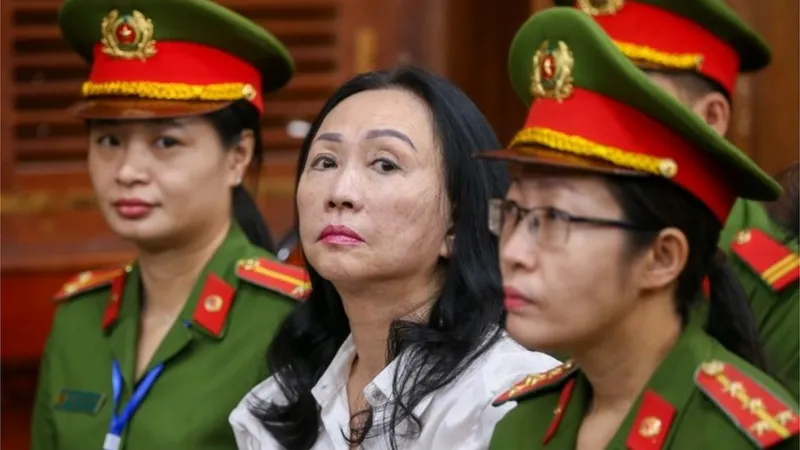A Vietnamese property tycoon, Truong My Lan has been sentenced to death for looting one of the country's largest banks over a period of 11 years. T
A Vietnamese property tycoon, Truong My Lan has been sentenced to death for looting one of the country’s largest banks over a period of 11 years.
Truong My Lan was convicted of taking out $44 billion (£35 billion) in loans from the Saigon Commercial Bank. The verdict requires her to return $27 billion, a sum prosecutors said may never be recovered.
85 others were tried with Truong My Lan, who denied the charges and can appeal.
All of the defendants were found guilty and four received life in jail. The rest were given prison terms ranging from 20 years to three years suspended. Truong My Lan’s husband and niece received jail terms of nine and 17 years respectively.
The habitually secretive communist authorities were uncharacteristically forthright about this case, going into minute detail for the media. They said 2,700 people were summoned to testify, while 10 state prosecutors and around 200 lawyers were involved.
Truong My Lan comes from a Sino-Vietnamese family in Ho Chi Minh City, formerly Saigon. It has long been the commercial engine of the Vietnamese economy, dating well back to its days as the anti-communist capital of South Vietnam, with a large, ethnic Chinese community.
She started as a market stall vendor, selling cosmetics with her mother, but began buying land and property after the Communist Party ushered in a period of economic reform, known as Doi Moi, in 1986. By the 1990s, she owned a large portfolio of hotels and restaurants.
By 2011, Truong My Lan was a well-known business figure in Ho Chi Minh City, and she was allowed to arrange the merger of three smaller, cash-strapped banks into a larger entity: Saigon Commercial Bank.
Vietnamese law prohibits any individual from holding more than 5% of the shares in any bank. But prosecutors say that through hundreds of shell companies and people acting as her proxies, Truong My Lan actually owned more than 90% of Saigon Commercial.
They accused her of using that power to appoint her own people as managers, and then ordering them to approve hundreds of loans to the network of shell companies she controlled.
The amounts taken out are staggering. Her loans made up 93% of all the bank’s lending.
According to prosecutors, over a period of three years from February 2019, she ordered her driver to withdraw 108 trillion Vietnamese dong, more than $4bn (£2.3bn) in cash from the bank, and store it in her basement.
That much cash, even if all of it was in Vietnam’s largest denomination banknotes, would weigh two tonnes.
She was also accused of bribing generously to ensure her loans were never scrutinised. A former chief inspector at the central bank was given a life sentence for accepting a $5m bribe.
The mass of officially sanctioned publicity about the case channelled public anger over corruption against Truong My Lan, whose fatigued, unmade-up appearance in court was in stark contrast to the glamorous publicity photos people had seen of her in the past.
